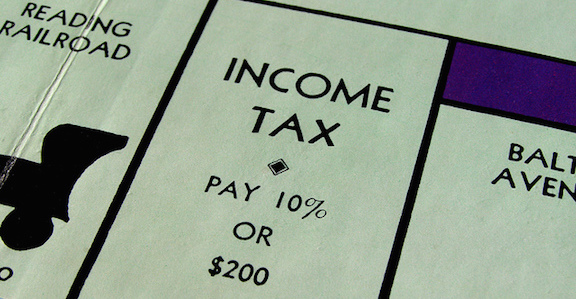Upping your tax bill today may cost you less tomorrow
Welcome to tax month!
Suppose you are a married emergency physician and your taxable income is $250,000. You’ll pay about $60,000 in federal income tax + $12,000 in state income tax (assuming 5% rate) + $10,000 in Social Security/Medicare taxes (if you are an employee, more if you are an independent contractor) for a total of $82,000. As your income rises not only do you pay more of most of those taxes, but you might get whacked with other ones also such as the net investment income tax, an extra Medicare tax, and a higher capital gains tax…. and don’t forget your property taxes! How’s that for not paying your “fair share”!
But as much as I hate to say this, sometimes it’s actually in your best interest to pay more taxes. Here are three reasons why you might want to up your tax bill:
Reason #1: Selling individual stocks for gains
One of the best ways to build wealth is to own a broadly diversified investment portfolio of mutual funds across multiple investment classes, yet I continue to meet physicians who own just a handful of individual stocks. In the past few years those stocks probably have gains as the global stock market has performed well. If you own these stocks in a taxable account, you face a dilemma: do you sell, pay the capital gains tax now and diversify, or do you hold on to them?
The answer is simple but painful. You need to hold hundreds or thousands of individual stocks for effective diversification. Owning just a handful is usually much riskier, and when the risk shows up on the downside, you’ll get pummeled with hefty losses. Those losses can easily exceed the extra tax bill for selling them now.
For example let’s say you bought a stock in a taxable account for $10,000, hit a home run, and a few years later it’s worth $50,000 for a total long-term gain of $40,000. If you sell then you’ll likely pay somewhere between $8,000 to $12,000 in capital gains tax for a net after tax gain of between $28,000 to $32,000. On the other hand you risk losing all $50,000 if the company goes belly up or losing far more than the tax you would pay if the stock drops.
Sell now and move on. Plus even if you picked some winning stocks, you’re really just gambling with your money and it’s likely just luck.
Reason #2: Skipping high cost insurance policies
Many financial advisors love selling permanent life insurance policies to doctors. The sales pitch goes something like this:
“Wouldn’t it be great to stuff as much money as you can in a tax free investment vehicle instead of a taxable account and pay no tax when you withdraw the money?”
Pretty tempting isn’t it? You may even start salivating like a rabid dog as you daydream over the buckets of money you would save by not paying any taxes on the investment gains.
Wait a minute. Here’s a particularly egregious example of a physician I met who fell for that sales pitch. This physician is in his 50s and bought a whole life insurance policy five years ago as a way to invest his money. The whole life policy “guaranteed” an annual rate of return of a few percent per year. In a whole life policy you build up cash value which could be used as an investment.
The physician pumped $50,000 dollars annually into the whole life policy for the past five years for a total outlay of $250,000. What is the cash value today? About $125,000. That’s right — a 50% loss in the first few years. It gets worse. Had he invested that money over the past five years in a taxable account and gotten a measly 5% annual after tax rate of return, then his investment would have grown to about $275,000. So his actual loss was $150,000. The problem with many whole life insurance policies is that the fees are so high that the break-even point on the cash value is many years down the road. I’d rather just pay taxes along the way and skip the tax free investment.
Reason #3: Saving more money
This might sound a little odd but if you need to save more money into your retirement portfolio you might have to pay more taxes to do so. If you are already maxing out your tax deferred accounts such as your employer sponsored 401k, a SEP IRA, or an individual 401k account, then you should strongly consider investing additional dollars in a taxable account. You’ll be taxed on dividends annually but you’ll most likely pay a 15% federal dividend tax rate on qualified dividends. That’s more palatable than the regular income tax rates on your income. Plus, if you sell an investment in a taxable account, you pay tax only on the gain and not the initial investment.
If you are in the later part of your emergency medicine career and you’re behind on your savings, another option is to work more shifts for the next few years and generate more taxable income so that you can save more money into your investment portfolio. Of course this will subject you to more income taxes and might even push you into a higher income tax bracket, but that might be the only option you have if you want to build up your investment portfolio more quickly.
Anyone who reads this column knows my distaste for paying more taxes, but sometimes increasing your tax bill today is just part of a savvy long-term investment strategy.
Now go and pay your fair share!
Photo by Chris Potter.



